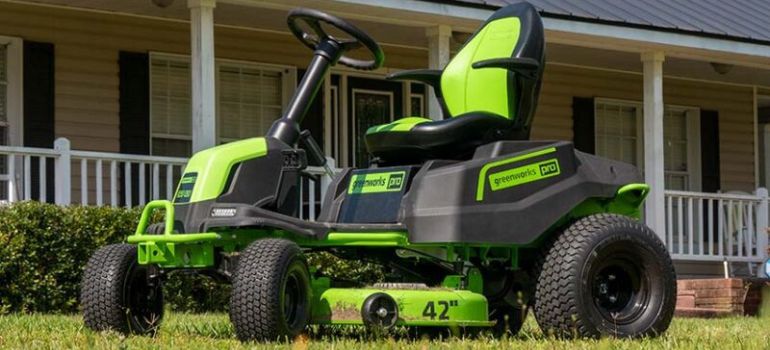Electric lawn mowers have become the go-to choice for environmentally conscious homeowners, and within this category, the battle between 40v and 60v mowers has intensified. Understanding the nuances between these two voltages is crucial for making an informed decision that aligns with your lawn care needs.
Introduction
As we witness a significant shift towards eco-friendly lawn care solutions, battery-powered mowers have emerged as a popular choice. The debate between 40v and 60v mowers is not just about numbers; it’s about finding the perfect balance between power, efficiency, and practicality.
Understanding Voltage in Lawn Mowers
Voltage is the lifeblood of electric mowers, determining their power and performance. In simple terms, the higher the voltage, the more robust the cutting capability. It’s crucial to grasp this concept before delving into the specifics of 40v and 60v mowers.
Advantages of 40v Mowers
Lightweight and Easy Maneuverability
One of the standout features of 40v mowers is their lightweight design, allowing for effortless maneuverability. This makes them an ideal choice for users with smaller lawns or those who struggle with heavy machinery.
Suitable for Small to Medium-Sized Lawns
For homeowners with modest lawn sizes, a 40v mower provides ample power to get the job done efficiently. The reduced power consumption also aligns with a more environmentally friendly approach to lawn care.
Environmental Benefits
Lower power consumption not only translates to cost savings but also contributes to a smaller environmental footprint. 40v mowers are a sustainable choice for those who prioritize eco-friendly alternatives in their daily lives.
Advantages of 60v Mowers

Enhanced Power for Larger Lawns
If you have a larger lawn or frequently contend with tougher grass, a 60v mower may be the better option. The higher voltage provides increased cutting power, ensuring a clean and precise trim even in challenging conditions.
Longer Battery Life
One of the significant advantages of 60v mowers is their extended battery life. This feature makes them well-suited for users with larger yards, as they can cover more ground on a single charge compared to their 40v counterparts.
Ideal for Extensive Mowing Needs
Homeowners with expansive lawns or those who mow less frequently will appreciate the efficiency and power that a 60v mower brings to the table. The convenience of a longer runtime minimizes interruptions during the mowing process.
Performance Comparison
In a head-to-head performance comparison, both voltage options have their strengths. The cutting power and efficiency of 40v and 60v mowers depend on various factors, including the type of grass, terrain, and frequency of use.
Conclusion
In the end, choosing between a 40v and 60v mower boils down to personal preferences, lawn size, and specific needs. Both options offer distinct advantages, and understanding these nuances is vital for a satisfying lawn care experience.
FAQs
Are 40v mowers suitable for large lawns?
- While 40v mowers are more ideal for small to medium-sized lawns, they can handle larger areas depending on the user’s patience and charging intervals.
Do 60v mowers require more maintenance?
- Not necessarily. Both 40v and 60v mowers have similar maintenance requirements, focusing on blade sharpening, cleaning, and battery care.
Can I use a 40v mower on tough, thick grass?
- 40v mowers are capable of handling standard grass types, but for consistently tough and thick grass, a 60v mower might provide better results.
How long does it take to charge the batteries for each type of mower?
- Charging times vary, but generally, 40v mowers take less time to charge compared to 60v mowers due to their lower battery capacity.
Are there any safety considerations when using electric mowers?
- Safety measures are similar for both 40v and 60v mowers. Users should follow standard safety guidelines, including wearing protective gear and being mindful of the mower’s power source.
